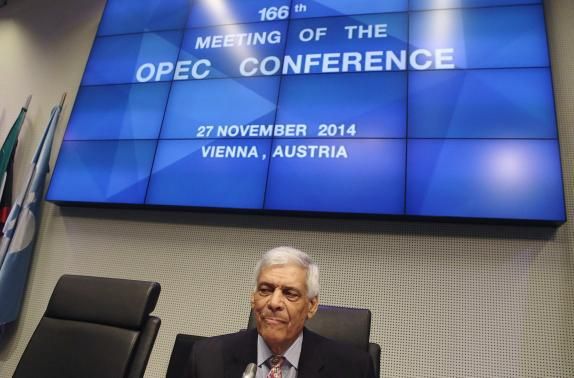 The price of oil slumped after the Opec oil producers' cartel decided not to cut output at its meeting in Vienna.
The price of oil slumped after the Opec oil producers' cartel decided not to cut output at its meeting in Vienna.
Opec's secretary general Abdallah Salem el-Badri said they would not try to shore up prices by reducing production, bbc reports.
"There's a price decline. That does not mean that we should really rush and do something," he said.
Following the announcement Brent crude hit its lowest since August 2010, falling below $72 a barrel, before settling at $72.82, 5% drop on the day.
The US benchmark dropped $4.64 to $69.05 a barrel, although market business slowed by midday in thinning Thanksgiving holiday business.
The 12 Opec members decided to maintain production at 30 million barrels per day as first agreed in December 2011.
"We don't want to panic. I mean it," said Mr el-Badri. "We want to see the market, how the market behaves, because the decline of the price does not reflect a fundamental change."
Crude oil prices have fallen 30% since June on sluggish global demand and rising production from the US.
The fall in the oil price has been causing concern for several members of the oil cartel, as most require a price above $80 a barrel to balance their government budgets and many need prices to be above $100 a barrel.
"Saudi Arabia and the Gulf states can resist for a while," said Simon Wardell, energy expert at Global Insight.
"They have significant financial assets that mean they can sustain a lower oil price. They can secure their budgets without a higher oil price."
Saudi Arabia is the largest producer within the Opec oil producing cartel.
 В Атырау -10
В Атырау -10